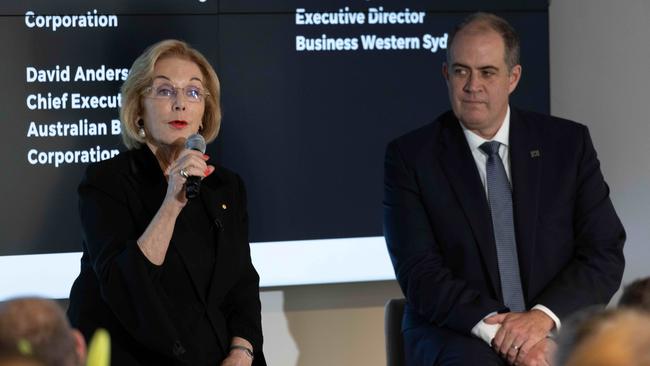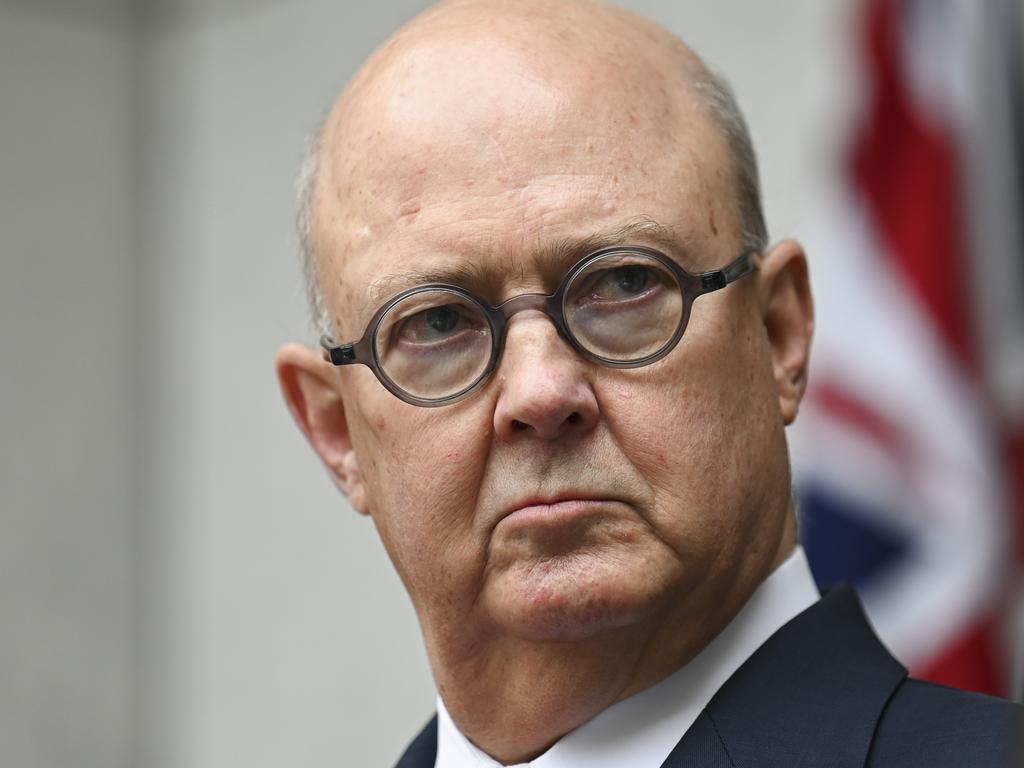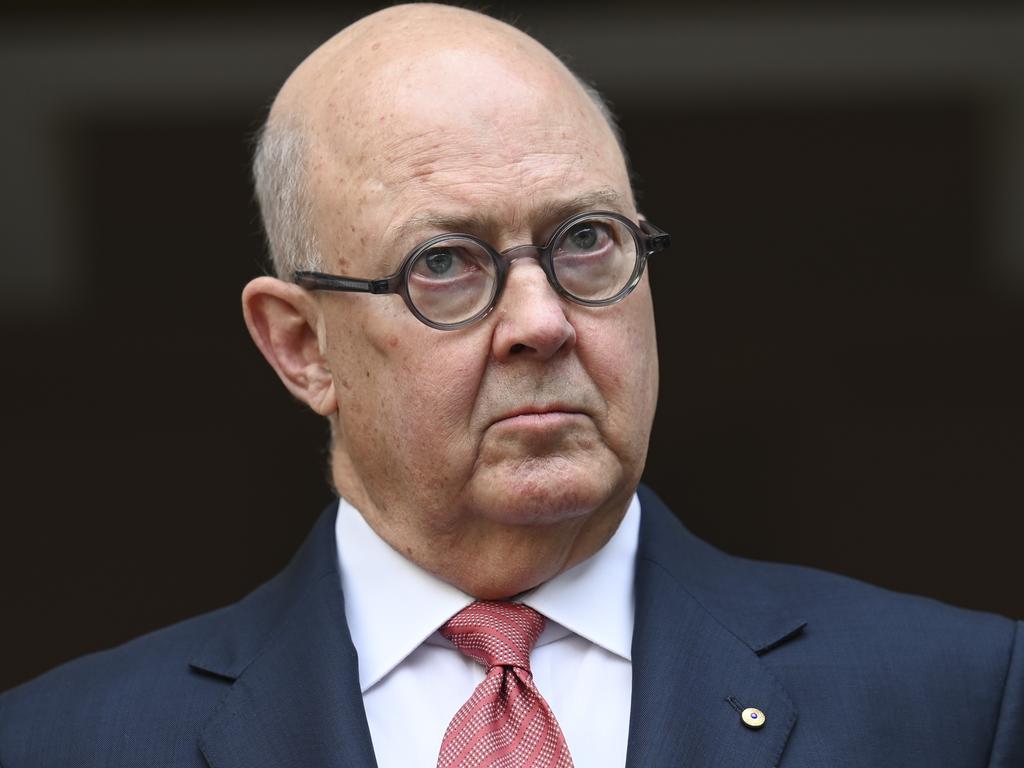Incoming ABC chair Kim Williams must make the public broadcaster ‘relevant again’
‘The ABC is definitely not connecting with people in the outer suburbs, especially in Sydney and Melbourne,’ one insider says of the overarching challenge facing incoming chair Kim Williams.

Business
Don't miss out on the headlines from Business. Followed categories will be added to My News.
Kim Williams’ greatest challenge as incoming ABC chair won’t be addressing the issue of perceived left-wing bias in some of the public broadcaster’s news reporting, or the political activism of a core group of staff, or the egregious tendency of a swath of the organisation’s supposedly impartial journalists to flood social media platforms with inappropriate posts.
While each of these matters will be on Williams’ fix-it list, they are all elements of the wider, overarching crisis that threatens the future of the ABC – relevance.
Because on that one critical measure, the taxpayer-funded broadcaster is spiralling.
“What’s missing is a connection with communities … and the ABC is definitely not connecting with people in the outer suburbs, especially in Sydney and Melbourne,” one senior ABC insider who asked not to be named told The Australian last week.
“The slide in ratings is alarming. And mainstream Australians are the ones disappearing, which just leaves you with an echo chamber that’s getting smaller and smaller.”
Asked what Mr Williams – a highly respected media executive with decades of industry experience – can do to lure audiences back to the ABC, the insider said: “Make it relevant, above all else.
“Think about what non-ABC viewers want.
“Too many journalists are stuck on doing what they want to do, rather than thinking about the audience’s needs and wants.
“Think about what makes the ABC distinctive, what sets it apart from its commercial rivals.
“There is no need to further bolster the ABC’s presence in Parliament House or in Martin Place or at Fed Square, it’s about connecting with communities away from the inner-cities, across both news and entertainment.”

As former ABC managing director Russell Balding told The Australian last year when asked about the trouble-plagued public broadcaster: “Once you lose relevance, you’ve lost the game.”
The ABC’s 2023 annual report published in October made for painful reading for management.
Weekly digital users fell from 17 million in 2021-22 to 13 million in 2022-23.
The ABC news website, ABC news app and ABC current affairs websites recorded 8.7 million weekly users in 2022-23, down 30 per cent from the previous financial year.
Broadcast audiences for the weekday 7pm news bulletins had a combined average metro and regional audience of 813,000 viewers, a drop of 15 per cent on the previous year, while Saturday and Sunday audiences also fell (down 15 per cent and 18 per cent respectively).
Radio presenter Josh Szeps, who hosted ABC Radio Sydney’s afternoon programs for two years until his departure from the broadcaster last year, said the ABC faces a difficult balancing act to accommodate all Australians across all demographics, but concedes that so-called “Middle Australia” is where the organisation is struggling.

“It’s a tricky pickle, because on the one hand you have an activist class of employees who want the ABC to slant its coverage in favour of social justice, to be ‘on the right side of history’,” he told The Australian on Sunday.
“But that’s anathema to the neutrality of the public broadcaster, and it alienates half the country.
“On the other hand, you want on-air talent to wrestle with provocative ideas, otherwise programming becomes anodyne.”
Szeps said there was “confusion” among staff at the ABC because rules were not enforced uniformly across the organisation’s various divisions, nor its journalists.

“There have always been two factions inside the ABC: contrarian creatives who believe in a brave, boisterous broadcaster; and officious, risk-averse functionaries. When the latter seems to wield power selectively and capriciously, the best talent flees.
“The solution, surely, is to tailor the rules more narrowly for each specific ABC role, and then enforce them transparently, without fear or favour.”
Another journalist, who works in one of the ABC’s regional newsrooms, who asked not to be named for fear of repercussions of speaking out, said the organisation had also mishandled its push to capture a younger audience, which, perversely, had alienated its core audience.
“It’s a complete misunderstanding of the ABC’s audience,” the veteran journalist said.
Mr Williams was circumspect during media interviews last week, preferring not to be drawn on the specifics of current dramas inside the ABC, most notably the fallout from the sacking of fill-in radio presenter and the subsequent vote of no-confidence in managing director David Anderson by a tiny cohort of the organisation’s unionised staff in the wake of the Antoinette Lattouf saga.
But he did hint that the status quo won’t do, telling ABC Radio that he would be “prepared to venture into the various potholes with … current news and current affairs coverage”.
Szeps, for one, is optimistic.
“The ABC is a national treasure. It’s full of brilliant people. It will find its way,” he said.
More Coverage
Originally published as Incoming ABC chair Kim Williams must make the public broadcaster ‘relevant again’





